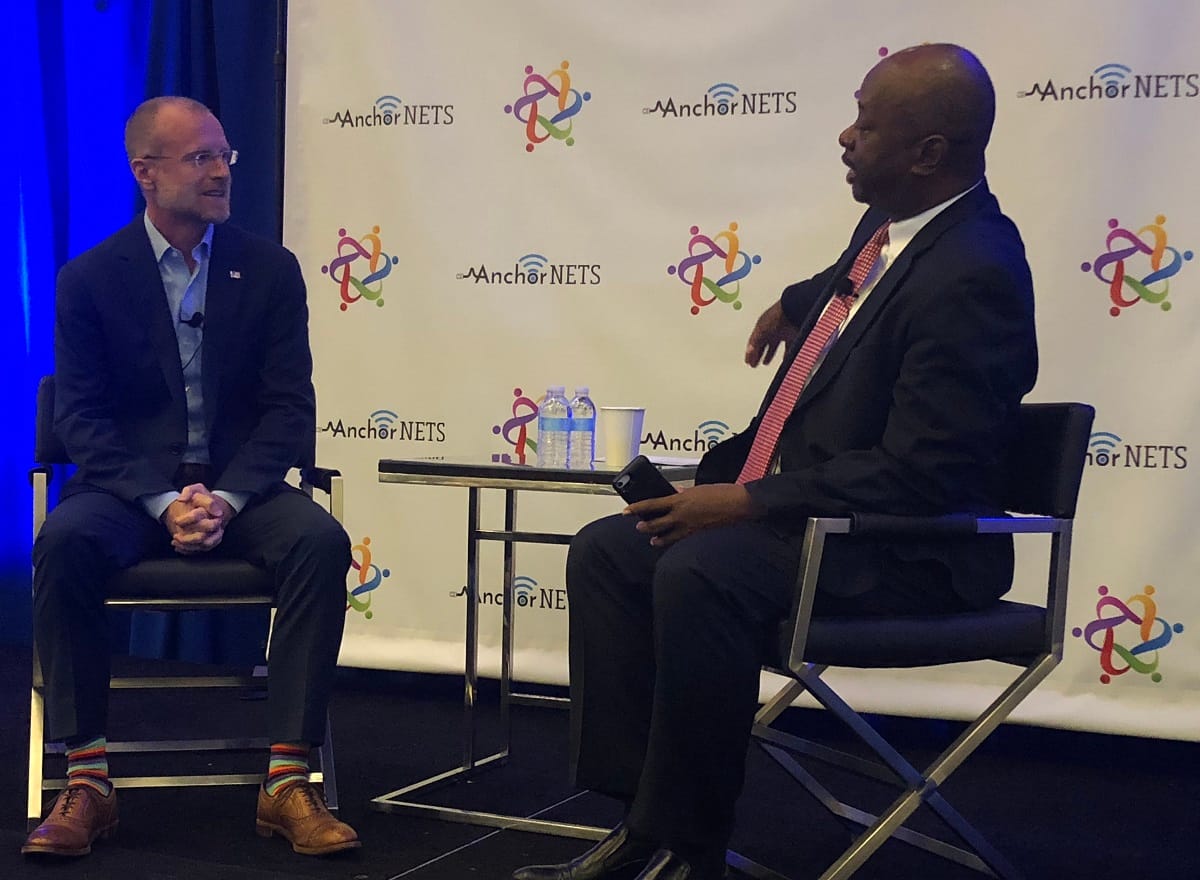FCC Commissioner Brendan Carr Touts Work on Enhancing Telehealth and Flexible Spectrum
ARLINGTON, Virginia, October 17, 2019 – Federal Communication Commissioner Brendan Carr highlighted his work at the agency on promoting telehealth, enhancing more flexible use of radio frequency spectrum and “making sure that the U.S. is in the lead” in the race for 5G. Speaking at the annual confer

ARLINGTON, Virginia, October 17, 2019 – Federal Communication Commissioner Brendan Carr highlighted his work at the agency on promoting telehealth, enhancing more flexible use of radio frequency spectrum and “making sure that the U.S. is in the lead” in the race for 5G.
Speaking at the annual conference of the School, Health and Libraries Broadband Coalition, #AnchorNets2019, Carr spoke extensively about the “mustard seed of an idea” around connected health care that has germinated from his visits to rural areas in 33 states and led to the proposal for a three-year, $100 million pilot program of the Universal Service Fund.
Recounting his visit to a diabetic patient in Ruleville, Mississippi, Carr said that a Bluetooth-connected glucose monitor was helping a patient make day-to-day health care decisions that allowed her to feel better than she ever has.
“We are seeing a new trend in health care,” Carr said. Just as we saw the transition from Blockbuster videocassette and DVD rentals to broadband-connected Netflix, “you no longer have to go to a brick and mortar” facility to enjoy better health care opportunities.
“These are communities that have broadband connections, fiber connections, and it is bringing access to all sorts of economic opportunities,” Carr said.
In addition to promoting telehealth and telemedicine, Carr said he has been working to ensure deployment of the wireless 5G standard, and also touted approaches taken by the commission that diverse entities and diverse internet applications make user of broadband wireless spectrum.
Over the past five, ten and 15 years, Carr said that FCC has moved away from an approach that to a “flexible use approach: We want to open up spectrum licenses for the broadest possible entities, and broadest possible uses.”
Sometimes, that conflicts with the interests of applicants, even those of the SHLB coalition. On the Educational Broadband Service spectrum, for example, Carr differed with SHLB and didn’t vote to support a separate application window for rural anchor institutions.
“While I understand the practical challenges that come [from that decision], in the long run it will be better if we allow everyone coming in at the same time, regardless of their status” as a particular type of spectrum user, Carr said.
Carr was keynote speaker at SHLB’s Attendees at the SHLB conference #AnchorNets2019. Broadband Breakfast is media sponsor of the event.









Member discussion